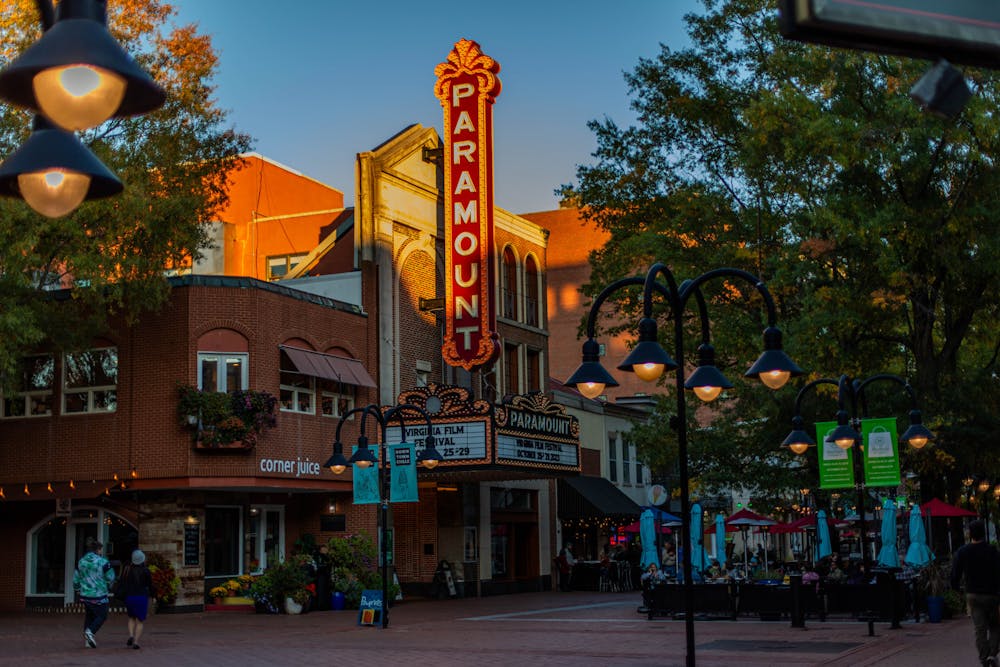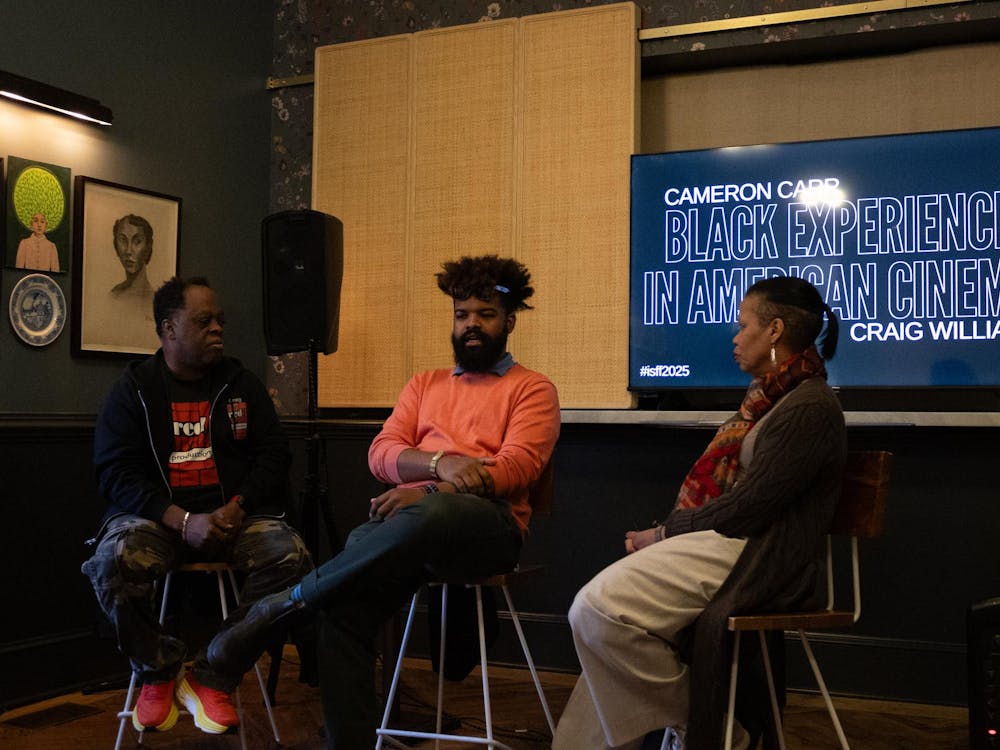On a warm Autumn evening, excited viewers poured into the Paramount Theatre to view one of the Virginia Film Festival’s most anticipated films — “Origin,” written and directed by acclaimed filmmaker Ava DuVernay.
The Paramount buzzed with anticipation Friday as viewers awaited the arrival of the film’s creator. DuVernay opened the show by accepting the Festival’s Visionary Award — awarded to artists whose work has “changed the course of modern cinema” — and delivering a speech about the film.
Following the pursuits of Pulitzer Prize-winning journalist Isabel Wilkerson, the film describes the journey that led the writer to create her acclaimed book, “Caste: the Origins of Our Discontents.” The book explores power dynamics and seeks to explain how social hierarchies operate in different parts of the world.
“Origin” was unveiled at the Venice Film Festival on Sept. 6 and the Toronto International Film Festival on Sept. 11, but Friday marks the first time the film was shown in the United States. For its national premiere, the decision to bring “Origin” to the Virginia Film Festival was no accident. In the movie, the events of the deadly 2017 Unite the Right rally are a catalyst for Wilkerson to write her book. DuVernay also noted that Charlottesville’s complex racial history connects fittingly to the film’s themes.
“It seems to me that there’s no better place in this country to bring this film,” DuVernay said. “Charlottesville is an integral part of a larger conversation about this country — it is a place I feel more of us need to understand, more people in this country should visit, more people need to interrogate the history [of], and interrogate the future [of].”
DuVernay also explained that the strength of the community in Charlottesville made it the perfect place to bring her newest film.
“When I’m here, I see people who are active — people who have experienced a lot of pain and a lot of triumph, and who are moving forward,” DuVernay said. “I’ve seen that in a number of communities every single time I come here, so it’s a place that holds a special part of my heart.”
Uproarious applause filled the theater as DuVernay wrapped up her speech. Moved audience members gave the director a well-deserved standing ovation as the film began.
“Origin” is both a biographical account of a period in Isabel Wilkerson’s life and a retelling of “Caste.” Wilkerson’s 2020 work compares three overarching stories from around the world — systemic racism in the United States, the Holocaust in Germany and the caste system in India — to survey the social power dynamics that transcend race and cultural boundaries. Personal anecdotes from people who have experienced prejudice or violence function to underscore the book’s message and illustrate the pervasiveness of hierarchies in everyday life.
“Origin” masterfully brings Wilkerson’s research and thesis to life. In the film, Aunjanue Ellis-Taylor expertly portrays Wilkerson as she tries to grapple with the recent tragedies — chiefly, the Unite the Right Rally and the death of Trayvon Martin. Her desire to find explanations for these events led Wilkerson to her research.
The film expertly weaves the arguments made in “Caste” with monumental events in Wilkerson’s personal life, including the deaths of her husband and mother. Reenactments of historical events and modern tragedies are woven into scenes and conversations from Wilkerson’s own life. These seemingly unrelated scenes create a tessellation of profound stories that, when taken as a whole, illustrate the intersections between the historical and the quotidian — the personal and the political.
With powerful performances from Ellis-Taylor, Niecey Nash and Audra McDonald, the film illustrates the power of research in helping us find meaning both in history and our everyday lives. By illustrating powerful bonds between family, friends and partners, it makes a profound statement about the power of human connection in breaking down the caste structures that plague societies around the world.
Throughout the film, DuVernay makes a clear distinction between racism and caste. While the dynamics of racism are explored thoroughly in the film, Wilkerson notes that oppressive systems of prejudice and violence can transcend race.
After “Origin” ended, DuVernay and producer Paul Garnes sat down with film critic Ann Hornaday to discuss the film. In the interview, DuVernay shared why she decided to bring a nonfiction book to life in a narrative film.
“As I learned more about what [Wilkerson] experienced around the time she was writing [“Caste”], she became larger than life to me — someone who I thought was the right anchor to take us through the story,” DuVernay said. “All that’s best served in cinema. You need a movie for that.”
DuVernay also praised the actors for their compelling performances, and noted the importance of making space for marginalized talent.
“When you think about Audra McDonald, Niecey Nash-Betts and Aunjanue Ellis-Taylor — these are Black women of a certain age…they are usually not getting the lead role,” DuVernay said. “And yet, the power and the talent there — it gets you thinking about opportunity.”
DuVernay stressed the importance of looking inward to fight back against caste systems.
“How do we combat this? Recognize it in yourself first,” DuVernay said. “We can take it from there. If we do a little better, then maybe we can proceed.”
In a community that has endured racism, violence and injustice, residents of Charlottesville have always had to grapple with their place in the American caste system. “Origin” has a universally resonant message — but for a city that is always confronting its place in history, its sentiment is felt in intricate ways.







